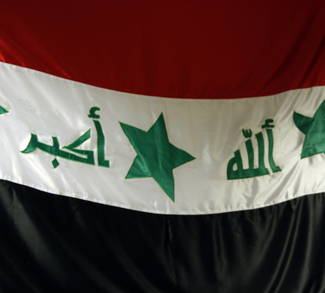FORECAST
Washington has repeatedly denied wanting a permanent military presence in Iraq, however a secret security agreement is being negotiated in Baghdad that would perpetuate the US military occupation of Iraq indefinitely, give free reign to US forces conducting the “war on terror”, and help contain Iran’s influence in the region.
Under the terms of the impending agreement, which was leaked to The Independent, the US would retain the long-term use of more than 50 military bases in Iraq after the current UN mandate expires at the end of the year. US negotiators are also seeking control of Iraqi airspace, legal immunity for all US soldiers and contractors, and the authority to carry out arrests and conduct military activities in Iraq without consulting the Baghdad government, resulting in free reign to pursue the “war on terror”.
The Iraqi government, led by Prime Minister Nouri al-Maliki, wants to delay signing the politically explosive accord for in addition to curtailing Iraqi sovereignty, it would destabilize Iraq’s position in the Middle East and perpetuate endless conflict in the country by fueling the Iraqi insurgency and exacerbating the proxy war between the US and Iran over influence in Iraq. But al-Maliki believes his coalition government cannot stay in power without US backing, and President Bush is determined to force the signing of the so-called ‘strategic alliance’ without modifications by the end of July.
The leaking of this secret agreement is certain to generate angry backlash amongst an Iraqi population weary of US forces. It has already done so amongst Iraq’s neighbours, who view an indefinite US occupation in Iraq as a pretext for permanent occupation and a further attempt by Washington to dominate the region. Iran, in particular, has responded with condemnation, suggesting that US bases on Iraqi soil would be used to launch attacks on Tehran.
Washington has denied the terms of the deal, which it called an “enduring myth”, stating that it only wants a role in Iraq similar to that of US troops in South Korea, in which long-term, not permanent bases, would provide stability and strengthen Iraqi sovereignty. Such bases would not be used to launch attacks on Iran or other neighbouring countries like Syria. Yet the Bush administration’s harsh rhetoric against Iran due to Iran’s nuclear program and backing of Iraqi Shiite militias, and increased US naval presence in the Persian Gulf lend credence to Iranian concerns of future attack. The secret security agreement with Iraq would facilitate Washington’s Middle East policy of containing Iran’s influence in the Arab world.
The security agreement will also have political repercussions in the US, for if successfully enacted, it will be heralded by the Bush administration as a military victory and vindication of the 2003 invasion of Iraq. This would, in turn, undermine Democratic presidential nominee Barack Obama’s pledge to withdraw US troops if he is elected president in November, while boosting the Republican candidate John McCain who has claimed the US is on the verge of victory in Iraq, a victory that he says Obama would throw away with a premature military withdrawal.
Although the security agreement is well on its way to being enacted, there is one Iraqi with the authority to stop it—the majority Shiite spiritual leader, Grand Ayatollah Ali al-Sistani. In 2003, Sistani forced the US to agree to a referendum on the new Iraqi constitution and the election of a parliament, thus the new security agreement could also be put to a referendum that most Iraqis would then vote down. However the Kurds, who make up a fifth of the population, are likely to favour a continuing US presence, as are Sunni Arab political leaders who want US forces to reduce the power of the Shiite who hold a parliamentary majority following elections in 2005. The Sunni Arab community, which has broadly supported guerilla warfare against US occupation, is likely to be split.
The US currently has 151,000 troops in Iraq and, even after projected withdrawals next month, troop levels will stand at more than 142,000 – 10 000 more than when the military “surge” began in January 2007.
The US-led invasion of Iraq began on March 23, 2003 on the grounds that Iraq possessed weapons of mass destruction and posed a security threat to the international community. On May 1, 2003, President Bush declared victory and the end of major combat operations following the defeat of Saddam Hussein’s government. Since then, an Iraqi insurgency and growing sectarian violence has hampered reconstruction efforts and claimed the lives of over 4000 US troops and nearly one million Iraqi civilians. Weapons of mass destruction have yet to been found.
SUMMARY OF EVENTS June 2 – 9, 2008
WORLD
World leaders opened a conference on the global food crisis on Tuesday, with human rights activists and the World Bank demanding action to curb soaring prices that are pushing an estimated 100 million people into hunger.
Gold jumped the most in six months after the U.S. jobless rate had the biggest gain in more than two decades, spurring a drop in the dollar. Silver also rose.
The Bilderberg Group, an elite club of politicians, executives and intellectuals, held their 56th annual meeting in Chantilly, Virginia.
NORTH AMERICA
United States
Battling to relieve stressed credit markets, the Federal Reserve said Tuesday it has provided a total of $435 billion in short-term loans to squeezed banks since December to help them overcome credit problems.
Accounting changes could force US banks to take thousands of billions of dollars back on to their balance sheets in the coming months in a move that is likely to curb further their lending and could push them into new capital raisings, analysts have warned.
The US is holding hostage some $50 billion of Iraq’s money in the Federal Reserve Bank of New York to pressure the Iraqi government into signing an agreement seen by many Iraqis as prolonging the US occupation indefinitely, according to information leaked to The Independent.
The United States is operating “floating prisons” to house those arrested in its war on terror, according to human rights lawyers, who claim there has been an attempt to conceal the numbers and whereabouts of detainees.
SOUTH AMERICA
Brazil
Brazil will use a planned nuclear-powered submarine to protect its off-shore oil fields, Defense Minister Nelson Jobim told lawmakers this week.
Venezuela
Venezuela on Tuesday accused the United States of trying to spread violence in the Andean region after a U.S. official said left-wing Colombian rebels were hiding in Venezuelan territory.
EASTERN EUROPE
Russia
Russia’s president called for a new peace treaty in Europe to resolve growing differences between Moscow and the West.
Russia risks destabilizing Georgia and the surrounding region by its troop buildup in the breakaway Georgian region of Abkhazia, a European Union official said.
MIDDLE EAST
Iraq
A secret deal being negotiated in Baghdad would perpetuate the American military occupation of Iraq indefinitely, regardless of the outcome of the US presidential election in November.
A majority of the Iraqi parliament has written to Congress rejecting a long-term security deal with Washington if it is not linked to a requirement that U.S. forces leave, a U.S. lawmaker said on Wednesday.
About 500 Australian combat troops pulled out of their base in southern Iraq on Sunday, fulfilling an election promise by Australian Prime Minister Kevin Rudd to bring the soldiers home this year.
Syria
Syria is not seeking nuclear weapons but wants to have access to atomic energy for peaceful purposes through a collective Arab project, President Bashar al-Assad said in remarks published on Tuesday.
Iran
Iran ruled out halting its disputed nuclear program on Tuesday, days before world powers were expected to offer trade and other benefits to coax Tehran into stopping atomic work they fear is aimed at making bombs.
IAEA chief Mohamed ElBaradei says Washington has hampered the agency’s investigations by denying Iran access to vital intelligence.
Israel
Palestinian President Mahmoud Abbas protested Jewish settlement growth near Jerusalem in talks on Monday with Israeli Prime Minister Ehud Olmert, who sought to show it was business-as-usual despite a corruption probe.
Israeli Prime Minister Ehud Olmert on Friday raised the spectre of a full-scale military operation in the Hamas-run Gaza Strip despite Egyptian attempts to mediate a truce.
SOUTH ASIA
India
The army-backed caretaker government in Bangladesh that has netted hundreds of politicians and businesspeople in a yearlong anticorruption drive has now rounded up nearly 12,000 people in what it calls a crusade against crime.
OCEANIA
Australia
Australian Prime Minister Kevin Rudd wants to spearhead the creation of an Asia-Pacific Union similar to the European Union by 2020 and has appointed veteran diplomat Richard Woolcott – one of his mentors – as a special envoy to lobby regional leaders over the body.
AFRICA
The International Monetary Fund (IMF) on Tuesday advised ECOWAS countries to take more steps to achieve economic and monetary integration within the sub-region, according to the official News Agency of Nigeria on Wednesday.
Uganda
The military option has finally prevailed over the voice of reason, and hopes of ever peacefully solving the 22 year old northern Uganda conflict now remain a wishful thought.
Zimbabwe
Zimbabwe authorities intensified a pre-poll crackdown Wednesday, detaining the opposition chief for several hours over accusations he had addressed a rally without authorisation and ordering charities to stop work.
Sudan
The United States suspended talks with Sudan on normalizing relations on Tuesday, saying leaders from the north and south were not serious about ending clashes that have stoked fears of a return to civil war.
Marsha Reid is a contributor to Geopoliticalmonitor.com



